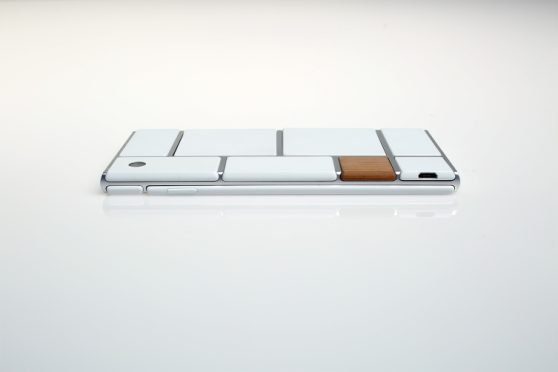Surprisingly, Google doesn’t see its ambitious Project Ara modular smartphone as something just for geeks.
In a lengthy profile by Time’s Harry McCracken, Google shined a light on its plans for Ara. And while the company still doesn’t seem sure if modular smartphones will be a hit, it’s certainly going to be interesting to see how the market reacts.
Google isn’t wasting much time, either. The company says it’s looking to release a basic $50 Ara unit, which will only have Wi-Fi connectivity (not cellular), by next year. The idea is that owners of that very basic phone will be able to plug in more advanced modules over time. It’s a phone that grows to suit the user — which is in stark contrast to our smartphones of today, which often force consumers to adapt to them.
Google announced yesterday that it will hold three Project Ara developer conferences this year, starting with one in mid-April.

That basic $50 Ara will likely be sold in convenience stores, just like feature phones today, and it will sport apps to help buyers customize additional modules. You’ll also be able to use apps on your friends’ Android phones to configure an Ara device (which could be useful if you don’t have ready access to a computer).
Another interesting reveal: Google is working on ways to convince people who’ve never had any experience with the web to consider Ara phones. This is one aspect of the Ara dream that I’m incredibly skeptical about — Google says apps will help users in developing countries design phones to suit their needs, but that will certainly be difficult if they have no experience with technology.
Other interesting takeaways:
- Google is developing Ara mobile kiosks that can fit into shipping containers and be sent all over the world. This will be a way for people to experience and customize Ara phones, as well as likely buy base units and additional modules.
- There’s going to be a huge reliance on 3D printing for customizing Ara modules.
- Google is considering using your social media history on Facebook and Google+ to recommend certain Ara modules to you. If you’re a frequent traveler, it may recommend a cellular module that works all over the world, for example.


